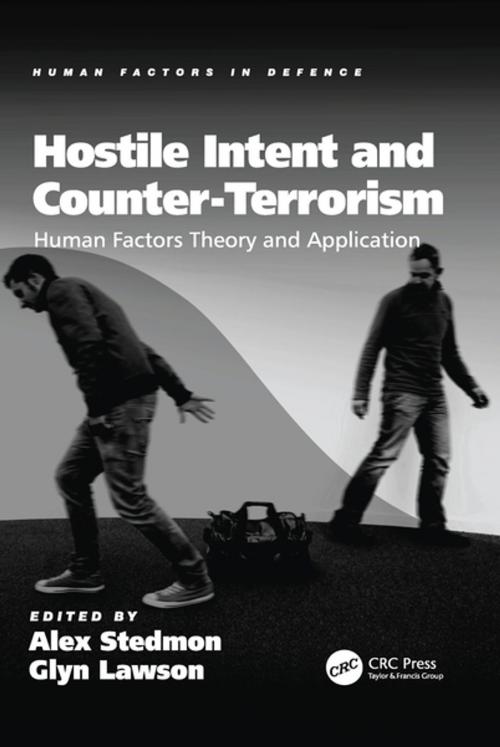Hostile Intent and Counter-Terrorism
Human Factors Theory and Application
Nonfiction, Science & Nature, Technology, Industrial Health & Safety, Military Science| Author: | ISBN: | 9781317121084 | |
| Publisher: | CRC Press | Publication: | September 18, 2017 |
| Imprint: | CRC Press | Language: | English |
| Author: | |
| ISBN: | 9781317121084 |
| Publisher: | CRC Press |
| Publication: | September 18, 2017 |
| Imprint: | CRC Press |
| Language: | English |
This volume presents world-leading ideas and research that explores some of the most prominent topics relevant to detecting terrorism. The book is divided into six key themes: conceptualising terrorism, deception and decision making, social and cultural factors in terrorism, modelling hostile intent, strategies for counter-terrorism, and future directions. Twenty two chapters cover the spectrum of detecting terrorist activities, hostile intent, crowded public spaces and suspicious behaviour. The work draws from high impact research findings and presents case-studies to help communicate concepts. Specific areas of interest include methodological issues in counter-terrorism, counter terrorism policy and its impact on end users, novel research methods and innovative technologies in counter-terrorism. A variety of disciplines are represented by this work, including: ergonomics/human factors, psychology, criminology, cognitive science, sociology, political theory, art/design, engineering and computer science. This book not only expands the knowledge base of the subject area and is therefore of prime relevance to researchers investigating counter-terrorism, but provides a valuable resource to security stakeholders at policy and practitioner levels.
This volume presents world-leading ideas and research that explores some of the most prominent topics relevant to detecting terrorism. The book is divided into six key themes: conceptualising terrorism, deception and decision making, social and cultural factors in terrorism, modelling hostile intent, strategies for counter-terrorism, and future directions. Twenty two chapters cover the spectrum of detecting terrorist activities, hostile intent, crowded public spaces and suspicious behaviour. The work draws from high impact research findings and presents case-studies to help communicate concepts. Specific areas of interest include methodological issues in counter-terrorism, counter terrorism policy and its impact on end users, novel research methods and innovative technologies in counter-terrorism. A variety of disciplines are represented by this work, including: ergonomics/human factors, psychology, criminology, cognitive science, sociology, political theory, art/design, engineering and computer science. This book not only expands the knowledge base of the subject area and is therefore of prime relevance to researchers investigating counter-terrorism, but provides a valuable resource to security stakeholders at policy and practitioner levels.















